DIVERSITY WITHOUT DIVISION
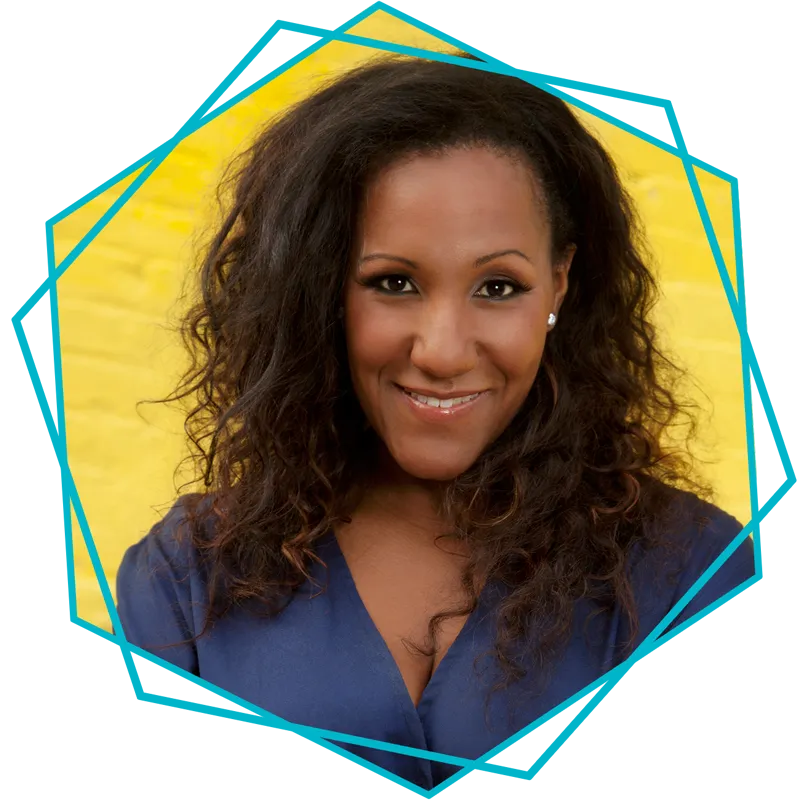
“Instead of #diversity, we’re going to talk about #inversity. We’re going to talk about the things we have in common with each other.”
- Karith Foster
How “Diversity Gone Wrong” Created INVERSITY™
How “Diversity Gone Wrong” Created INVERSITY™
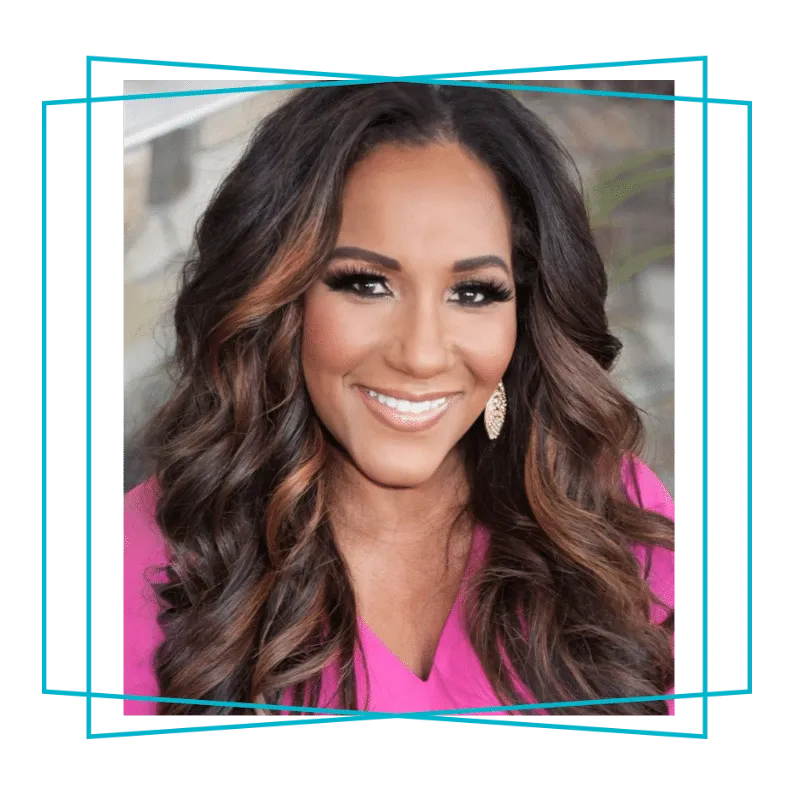
I saw first-hand “Diversity Gone Wrong” as a co-host on a popular radio & TV show in the US. I was unwittingly thrown into the world of DEI and I quickly became a student of common practices, language, benefits and obstacles.
I saw first-hand “Diversity Gone Wrong” as a co-host on a popular radio & TV show in the US. I was unwittingly thrown into the world of DEI and I quickly became a student of common practices, language, benefits and obstacles.
I was brought on to be co-host of the “Imus in the Morning” show after the controversy surrounding radio host Don Imus’s remarks about the Rutgers University women’s basketball team. He wanted someone to help him have a national conversation about racism in America. As a nationally headlining comedian who had multiple radio hosting positions under my belt — and an educated Black woman — I was in a position to engage in that dialogue.
It was no small task for one person, let alone a radio and television show.
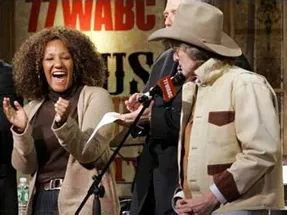
I put my life, safety and reputation on the line to help foster compassionate conversations on this topic and move America to a place of social healing. That was essentially my introduction into the world of diversity and I soon became enlightened as to how these conversations were happening across the country, in companies and at schools.
Not long after, there was another incident involving a Rutgers University student. A young man, Tyler Clementi, took his life by jumping off the George Washington Bridge after being outed by his roommate and other peers who secretly recorded him in an intimate situation. That story broke my heart. No one should feel that alone or isolated for whatever it is they believe sets them apart from everyone else — be it their sexuality, their ethnicity, their religion or their socioeconomic status.
The question I asked myself was, “How can I help? What can I do?”
I realized the tools in my arsenal were storytelling and humor — universal ways to bring people together. I initially designed a diversity program
called Stereotyped 101 that blended humor, audience participation and personal stories to engage people on sensitive topics.
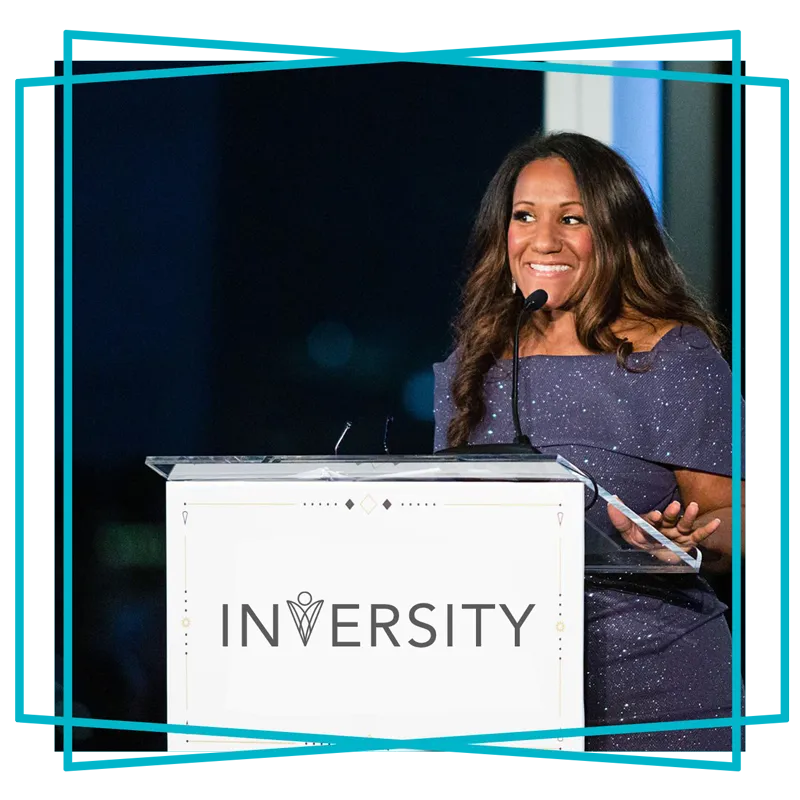
It has since evolved into INVERSITY, the inverse of the word “Diversity,” which has divide/division at its root.
Division is exactly what we see happening when diversity is done poorly — that includes checking a box, wagging a finger or placing blame and shame.
My goal is to take the division out of diversity by shifting the focus from what separates and divides us to what we have in common, how we can be inclusive of each other and become more introspective —
understanding our value, our worth and our connection to humanity.
What I found was that people weren’t ready for the real conversations around Diversity because of their own hesitations, misunderstandings and egos.
Ironically, there was a surprising lack of “diversity” within the
conversation about Diversity. We face the same situation today.
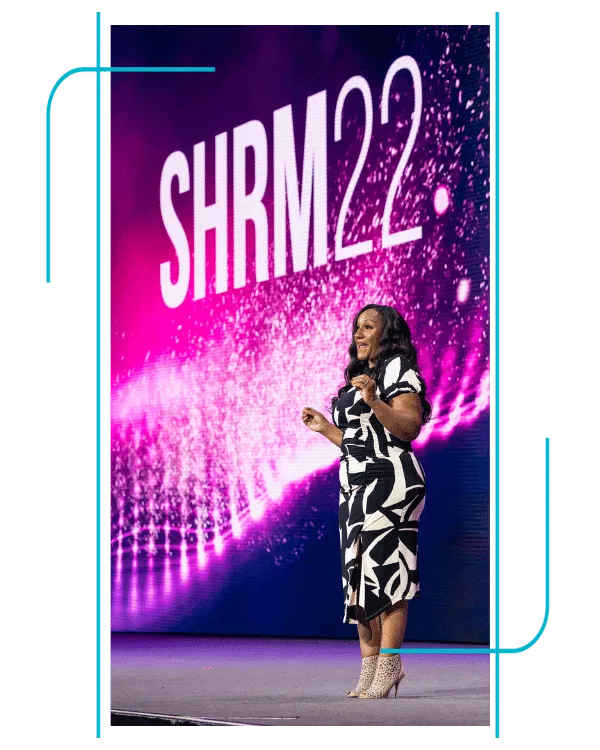
What are some areas where the typical DEI approach falls short?
So much of the traditional DEI approach seems to be about penetrating
the mind from the outside, and changing the way somebody thinks, feels and believes. Instead, the goal of INVERSITY™ is to honor, recognize and celebrate all that we bring to the table — our background, our heritage, our identity — without letting those things completely run the show.
I am teaching people a new way to approach diversity, so this important conversation doesn’t end in a stalemate or create more division and
vitriol. My approach empowers us to move forward. We may not leave a Keynote or Workshop holding hands and singing “Kumbaya,” but we can certainly develop a new level of respect for one another and gain the
ability to see others as worthy humans who want the same thing that we all do: to be heard, loved, respected and valued. That compassion component is really what’s lacking in the traditional DEI work. We think this work is a two-way street when it’s actually a six-lane highway.
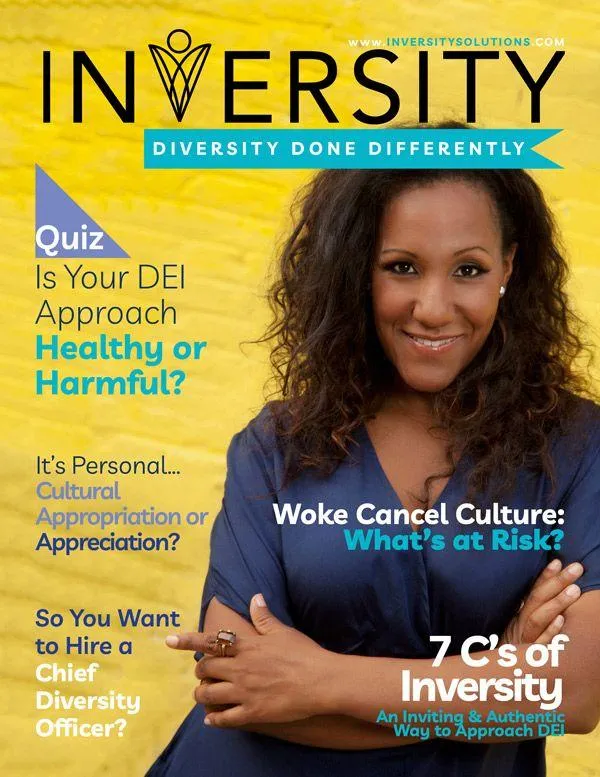
Along the way, I discovered a secret sauce…
Thanks to my unique background as a professional comedian, I found scientific studies that prove humor can positively affect learning, memory retention and motivation. (If you’ve ever dreaded a diversity training, you know just how important motivation is!)
With my INVERSITY work, I’ve harnessed this power of humor. What I love most is seeing the mind-shifts, epiphanies and transformations specifically around people’s relationships with their co-workers, families and friends.
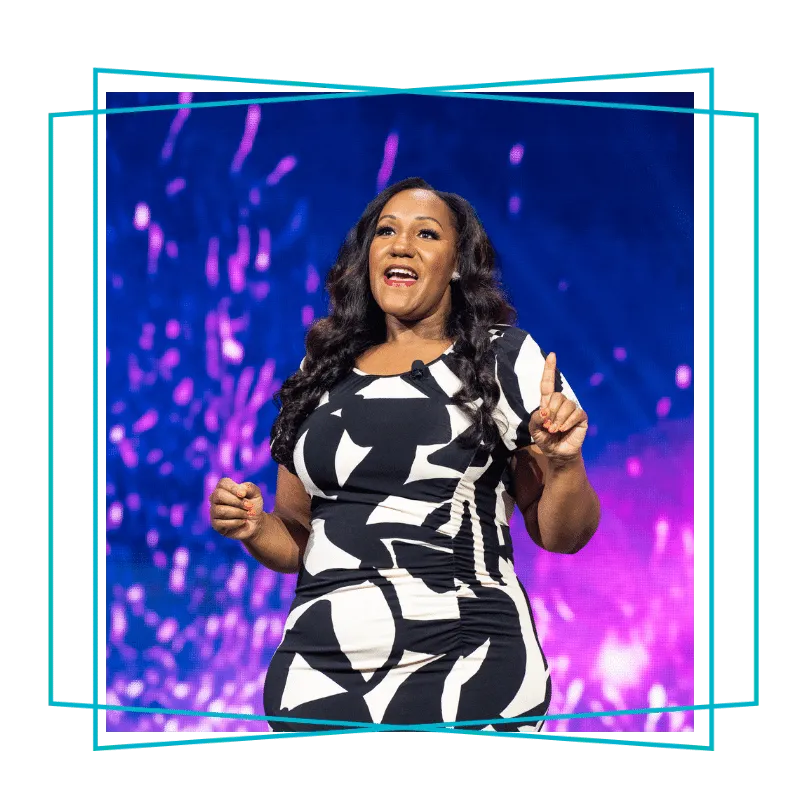
Now with 30+ years of public speaking (I started when I was 15), 20+ years of performing stand-up and nearly a decade in the inner workings of HR at a global enterprise, I’ve created INVERSITY Solutions.
If I could do only one thing for the rest of my life, it would be to create brave spaces for people to re-evaluate how they see themselves and others—and reassess how they can authentically show up in the world.
INVERSITY does this by igniting conversations within organizations that have the power to change lives, create connections and strengthen relationships.
Are You Ready to Do Diversity Differently?
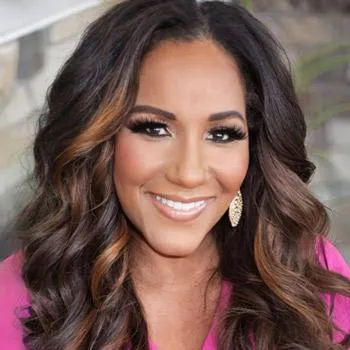
Karith Foster
Founder, INVERSITY™ Solutions
Diversity, Equity, Inclusion and Belonging (DEIB) Specialist
Keynote Speaking, Training & Consulting
WATCH
What Makes INVERSITY
Different?
KEYNOTE SPEAKING & WORKSHOPS
For over a decade, Karith has given presentations and training at corporations like The Estée Lauder Companies, Berkshire Hathaway companies, and Bristol-Myer Squibb, academic institutions such as Stanford, MIT, Harvard and training associations like SHRM, CTIA and the US Chamber of Commerce.
LEADERSHIP ROUNDTABLES
Uncover the immense potential of Leadership Roundtables, a collection of dynamic facilitated discussions and planning sessions, equipping leaders to evaluate their progress, advance Connection efforts and create a C.A.R.E. Culture within their organizations.
ONLINE LEARNING
Access online learning and real tools to navigate the sensitive and ever-evolving landscape of belonging. INVERSITY™ offers seven online learning modules with engaging supplemental activities designed for introspection and reflection.
Karith Foster Has Been Featured In...
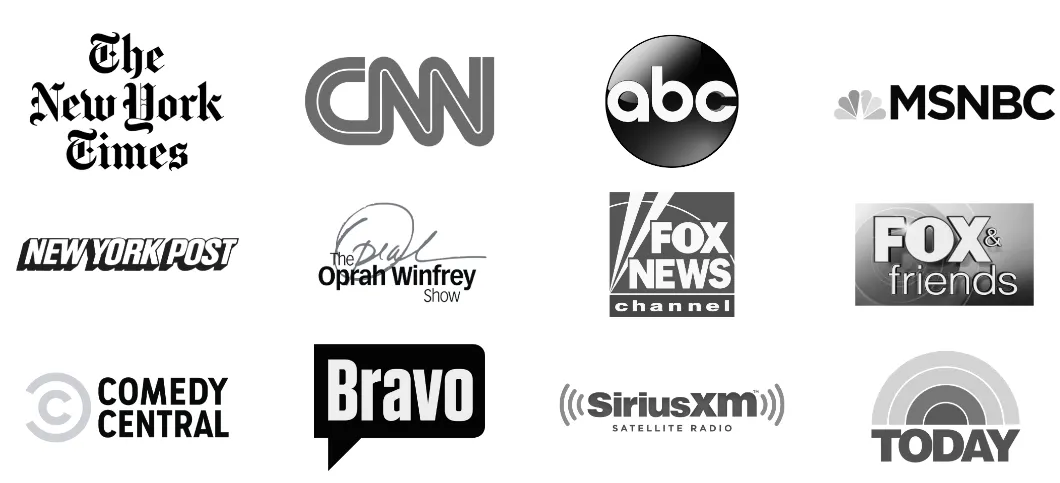
"Her approach allows everyone ‘to make mistakes, say the wrong thing sometimes and be able to correct it.’
‘It’s not about being right or wrong but understanding when bias comes into play.’”
THE NEW YORK TIMES
About Karith Foster
“I think hearts and minds CAN be changed, but it takes effort.”
- Karith Foster
About Karith Foster
“I think hearts and minds CAN be changed, but it takes effort.”
- Karith Foster
Official Bio
For over a decade, Karith Foster has given presentations and training at top companies like Estée Lauder Companies, Berkshire Hathaway companies, Bristol-Myers Squibb, and top law firms like Fenwick & West. She has spoken at academic institutions including Harvard University, Massachusetts Institute of Technology (MIT), Brown University and Emerson University. Her expertise is also sought after by industry associations like SHRM, CTIA, the US Chamber of Commerce, and the US Institute for Legal Reform. Karith has also shared a stage with Brené Brown at SHRM's 2019 national conference, emceed SHRM's 2022 conference, introducing Arianna Huffington and former President George W. Bush, and has been a repeat lecturer at Stanford Graduate School of Business for nine years.
Before founding INVERSITY's groundbreaking diversity and belonging programs, Karith worked in Human Resources at Estée Lauder's corporate headquarters for a decade after a career in broadcast journalism at ABC’s The View. Notably, Karith co-hosted MSNBC’s Imus in the Morning nationally syndicated show, was featured in two hit documentary films, and her TEDx talk "The Art of Defying Stereotypes," received accolades in The Washington Post and TIME Magazine. Her 25-year passion for stand-up comedy led to TV and radio appearances on Oprah, The Today Show, and Comedy Central. Karith is an alumna of Stephens College and Oxford University.
As a speaker, humorist, diversity expert and bestselling author of You Can Be Perfect or You Can Be Happy, Karith creates seismic shifts in DEIB through INVERSITY's methodology. Her blend of wisdom and humor inspires audiences to commit to inclusion and belonging. As CEO of INVERSITY Solutions and founder of non-profit F.R.A.M.E., Karith leverages her background in media, HR and comedy to transform challenging conversations into opportunities for growth, embracing her motto: "If you can laugh at it, you can get through it" – an invaluable lesson she seeks to instill in others.
Official Headshots
You are free to use the photo selects below for media coverage. Just click the individual images to download the high-res version.
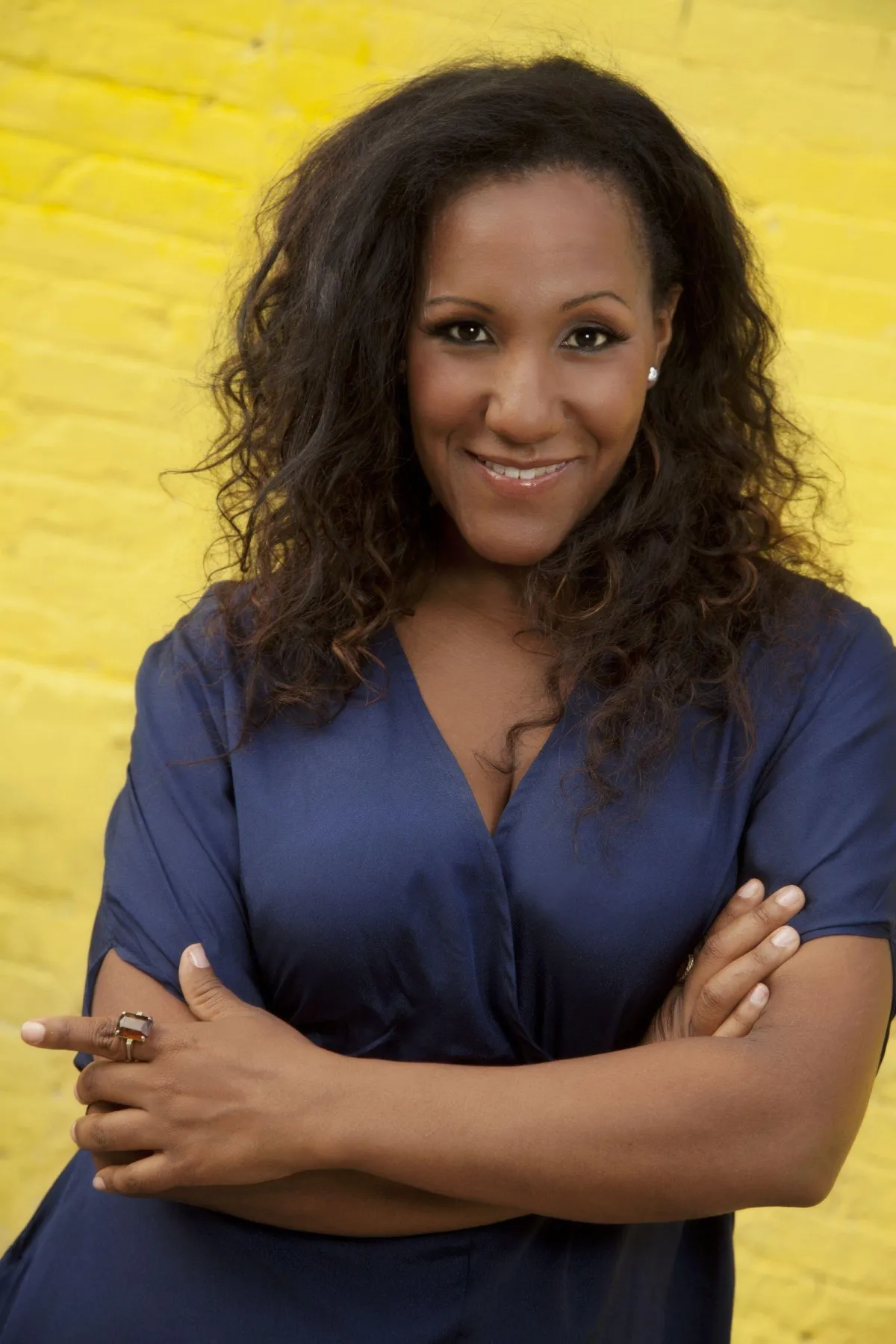
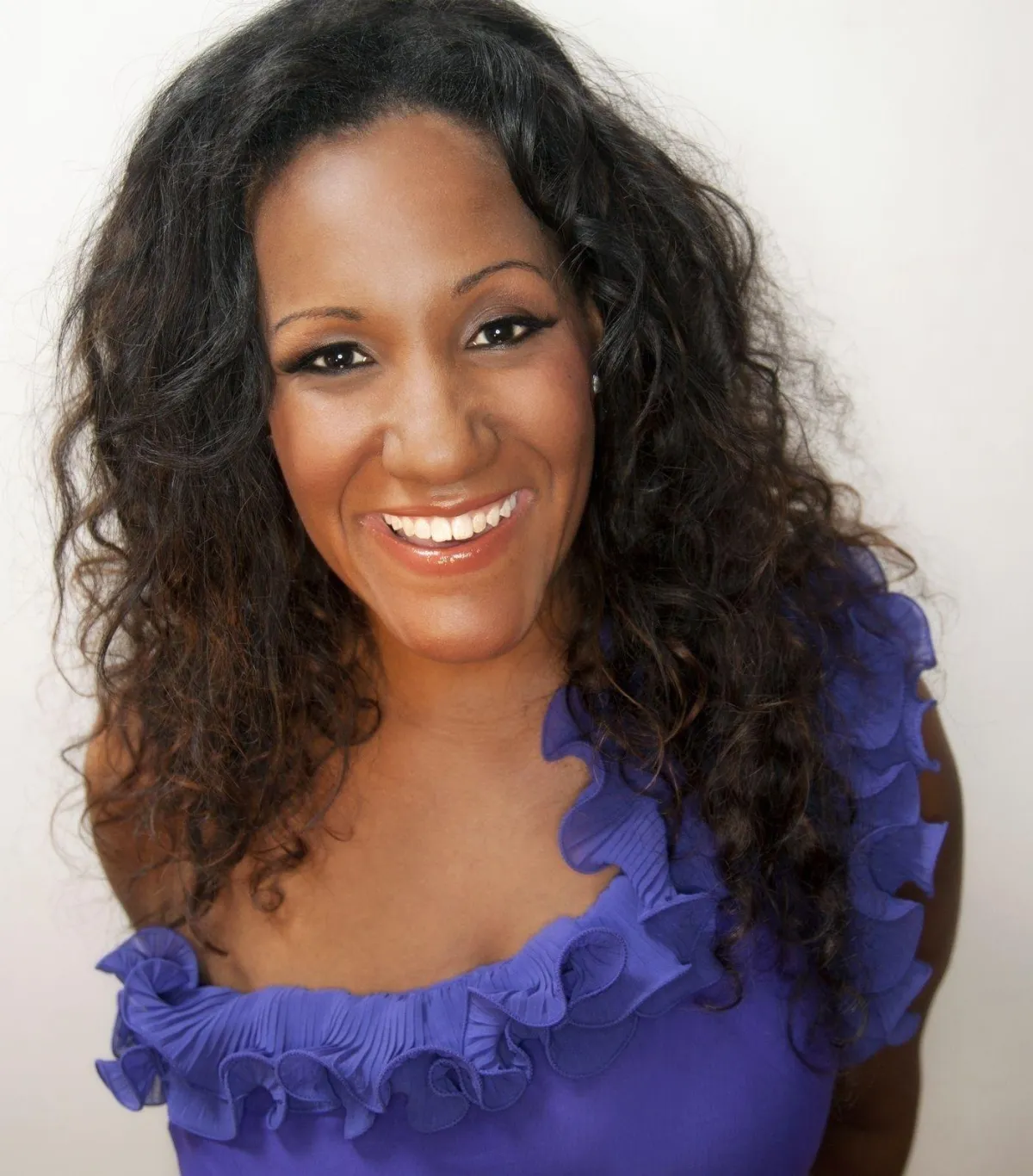
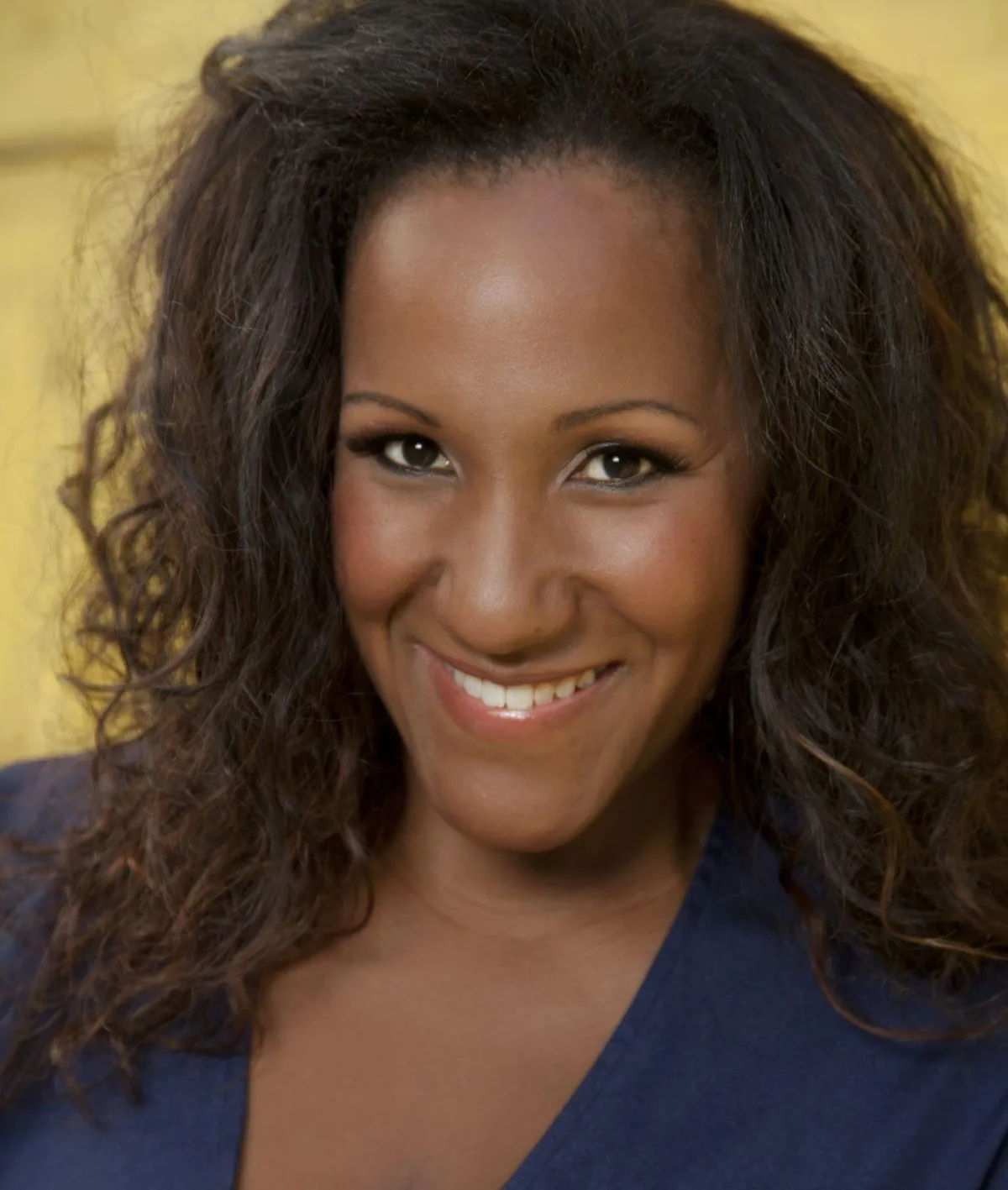
Official Bio
For over a decade, Karith Foster has given presentations and training at top companies like Estée Lauder Companies, Berkshire Hathaway companies, Bristol-Myers Squibb, and top law firms like Fenwick & West. She has spoken at academic institutions including Harvard University, Massachusetts Institute of Technology (MIT), Brown University and Emerson University. Her expertise is also sought after by industry associations like SHRM, CTIA, the US Chamber of Commerce, and the US Institute for Legal Reform. Karith has also shared a stage with Brené Brown at SHRM's 2019 national conference, emceed SHRM's 2022 conference, introducing Arianna Huffington and former President George W. Bush, and has been a repeat lecturer at Stanford Graduate School of Business for nine years.
Before founding INVERSITY's groundbreaking diversity and belonging programs, Karith worked in Human Resources at Estée Lauder's corporate headquarters for a decade after a career in broadcast journalism at ABC’s The View. Notably, Karith co-hosted MSNBC’s Imus in the Morning nationally syndicated show, was featured in two hit documentary films, and her TEDx talk "The Art of Defying Stereotypes," received accolades in The Washington Post and TIME Magazine. Her 25-year passion for stand-up comedy led to TV and radio appearances on Oprah, The Today Show, and Comedy Central. Karith is an alumna of Stephens College and Oxford University.
As a speaker, humorist, diversity expert and bestselling author of You Can Be Perfect or You Can Be Happy, Karith creates seismic shifts in DEIB through INVERSITY's methodology. Her blend of wisdom and humor inspires audiences to commit to inclusion and belonging. As CEO of INVERSITY Solutions and founder of non-profit F.R.A.M.E., Karith leverages her background in media, HR and comedy to transform challenging conversations into opportunities for growth, embracing her motto: "If you can laugh at it, you can get through it" – an invaluable lesson she seeks to instill in others.
Official Headshots
You are free to use the photo selects below for media coverage. Just click the individual images to download the high-res version.



WATCH KARITH
TEDx TALK
The Art of Defying Stereotypes
Small Call to Action Headline
Media Real
Laugh. Think. Grow.
Small Call to Action Headline
IT'S NOT HARD WORK;
IT'S HEART WORK.
What is INVERSITY™?
INVERSITY™ redefines leadership programming by offering a truly INclusive way to communicate, learn, and create an environment vital to an organization's success.
INVERSITY™ accomplishes this mission by creating and supporting brave environments to hold courageous conversations based on intentional language, positive psychology and neuroscience.
Connect on Social

Copyright © 2025. All rights reserved.
INVERSITYTM is a trademark of Inversity Solutions, LLC
